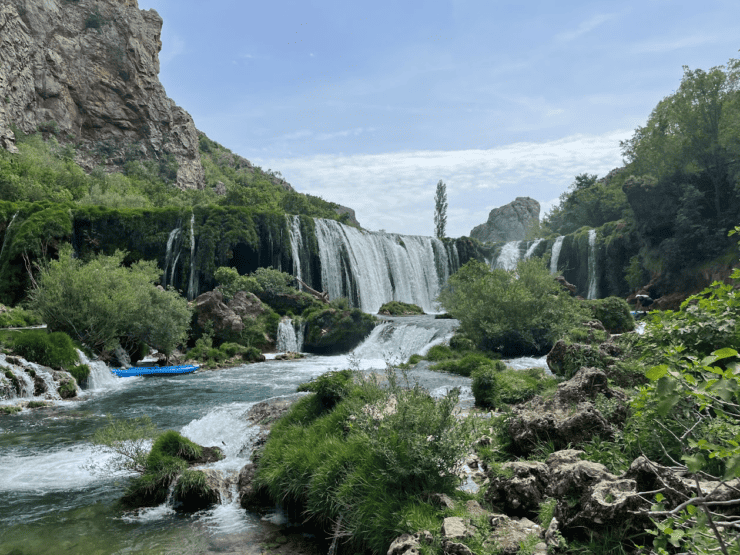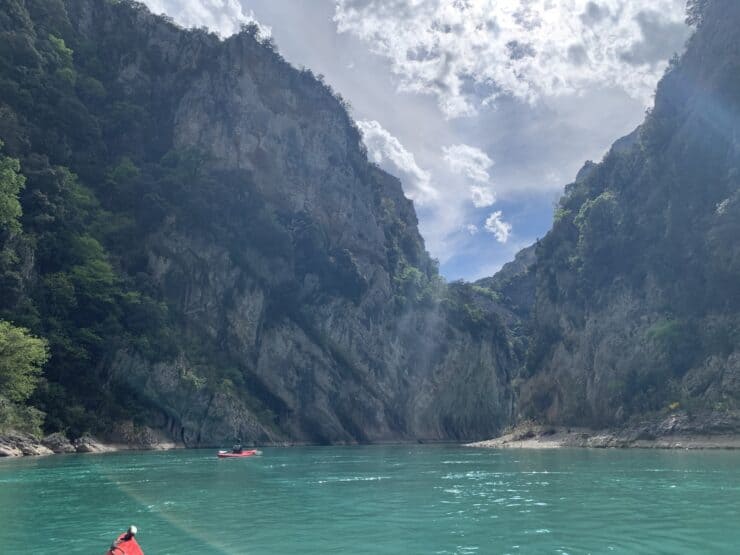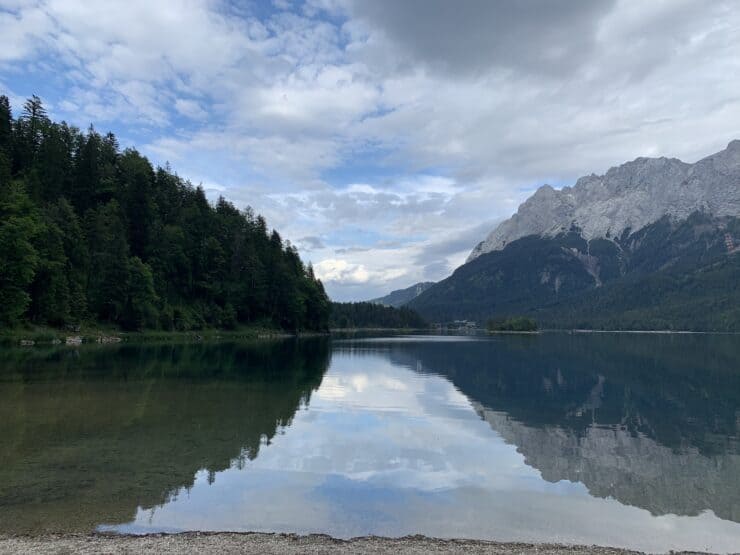Tips for Sustainable Travel as a Couple
Guest Post by Ben Lloyd
Tourism provides an unprecedented boost to local GDP and promotes significant economic growth in countless destinations worldwide.
It helps to create jobs and livelihoods for many disadvantaged communities, who, without tourists, would struggle to make a living.
Yet, the negative impacts of tourism are there for all to see – overcrowding, habitat loss, pollution, coral bleaching, and extensive greenhouse gas emissions from the aviation industry are some stark reminders that tourism isn’t always a good thing.
With that in mind, this article will cover just some of the ways couples can sustainable travel as a couple in a eco-friendly, and climate-conscious manner.

What is sustainable travel?
First things first, what is sustainable travel? Many hear the term ‘sustainable travel’ and automatically think of the environment and the detrimental environmental impact that tourism, particularly over-tourism, can have on a destination.
Sustainable travel can be broader than just the environment to consider more broadly how to minimize the negative impacts and promote positive benefits for visited communities and the planet.
This form of sustainable travel, where the communities you’re visiting are at the forefront of your consciousness, can also be referred to as ethical travel.
Why is it important to look for sustainable travel as a couple?
One simple answer to this question is that there are two of you traveling together. Double the carbon footprint. Double the weight of responsibility.
Another way to look at this is that you also have double the chance of making a positive impact. Together, you can positively impact the people you visit and the places you travel to.
Making a few minor changes to how you travel can make a huge difference and put you on the right path to becoming a climate activist without knowing it.
Following the sustainable travel tips for couples listed below, you can visit new destinations while simultaneously conserving the environment, preserving cultures, and promoting sustainable communities.
Opt for slower travel and stay in one place longer
One simple tip for learning to travel sustainably as a couple is to slow down and opt for a much more relaxed pace when seeing a new destination.
Instead of going through Southeast Asia and trying to tick off as many countries as possible in a short time, consider choosing 2 or 3 countries to visit and spending much longer in each of them.
Traveling slower means less time spent in greenhouse-gas-emitting planes and more time embracing the cultures and ecosystems in the places you’re visiting.
An easy, tangible way to achieve the goal of opting for slower travel is to swap three quick weekend getaways each year and instead choose one 2-week holiday in a single destination.
Not only will this lower your carbon footprint and lessen your environmental impact, but it will also give you the chance to delve deeper into the culture and community you’re visiting – thus being able to understand and give back to the people you meet along the way.

Support conservation/humanitarian projects when traveling
An excellent gap year idea for couples is spending the year volunteering for a conservation/humanitarian project that genuinely enhances the lives of the people you’re helping and the environment you’re visiting.
Even if you don’t have an entire year to spend, volunteering for a conservation/humanitarian project instead of a traditional travel experience can be an enriching and unique experience.
Instead of visiting Costa Rica and spending 3 weeks exploring cloud forests, paragliding or flying on zip-lines, you could spend 2 weeks volunteering in a sloth sanctuary and one week working for a sea turtle conservation project.
Supporting these kinds of projects when traveling means, as a couple, giving back to the places you visit far more than taking away – by definition, you are choosing to travel sustainably as a couple.
Try to take less plane journeys.
Arguably the most popular sustainable travel tip, try taking as few plane journeys as possible throughout your travels.
While it is understood that to reach long-haul destinations, it is particularly tricky to not take a plane, you can easily try to reduce the number of domestic plane journeys you take in a year.
Instead of flying from Edinburgh to London for the weekend, could the two of you choose to take the overnight sleeper train?
Many businesses are now choosing to host essential meetings online instead of flying business jets to each corner of the globe to reduce their global footprint. As a couple that travels, you can do the same by reducing the number of flights you take in a year.
It’s a straightforward step that can positively impact the environment.

Reduce your carbon footprint when flying.
As mentioned above, reaching some destinations can be incredibly impractical or sometimes impossible not to fly.
For these instances, it is recommended that you do your best to reduce your joint carbon footprint as much as possible.
Some handy little tips to reduce your carbon footprint when flying include:
- Choose to fly on a newer aircraft – new planes are more fuel efficient, burn less carbon dioxide, and have a smaller carbon footprint.
- Pay to offset your carbon footprint – many airlines now offer programs whereby you can pay a little extra for your ticket, and they will contribute the funds to their carbon offsetting program.
- Buy a seat in economy class – it may be tempting to purchase business class seats for the extra legroom and comfort, but economy class seats have far greater fuel efficiency per seat than business class seats.
- Take non-stop flights when possible – non-stop flights burn far less fuel (per mile) than a multi-stop flight between the same destinations.
Conserve energy and water wherever you travel.
Something to consider when traveling as a couple is that the negative impacts on the environment can be doubled.
Here are a few simple tips for conserving energy and water while traveling as a couple:
- Reuse towels in hotel rooms
- Ask for the sheets on your bed to not be changed until you’ve completed your stay.
- Turn off all lights and air-conditioning when you’re not using the room.
- Don’t waste food at all-you-can-eat breakfasts and buffets – only take what you will eat.
- Take shorter showers
- Choose to walk as much as possible when traveling instead of jumping in a taxi for convenience.
Buy a reliable water bottle – avoid single-use plastics.
One of the best hiking tips for couples, which also is a great tip for traveling sustainably as a couple, is to buy a reliable water bottle that can be re-filled and reused to avoid single-use plastics as much as possible.
If you’re traveling to a country where the tap water is unsafe for you to drink, buy 2 water bottles with filters and choose to fill up from the tap this way instead. This is much more environmentally friendly than purchasing water from the shop that comes in a plastic bottle.
Here are a few other tips for avoiding single-use plastics when traveling as a couple:
- Bring 2 sets of metal/bamboo cutlery with you – trying different cuisines, particularly street food, is a significant incentive for many couples looking to travel. You can bring two sets of sustainable cutlery to avoid using plastic knives and forks when trying local dishes.
- Bring 2 metal straws with you – very similar premise to the cutlery above, bringing metal straws with you means no longer having to use plastic straws.
- Bamboo toothbrushes reduce unnecessary plastic waste and do as good of a job as an ordinary plastic toothbrush.

Visit Countries renowned for Sustainable Tourism
When choosing a destination to travel to as a couple, perhaps you’ve considered how to travel there sustainably, but have you ever considered how sustainable the actual destination is?
Many countries around the globe are taking a stance against climate change and vigorously investing in sustainable tourism initiatives to pro-actively promote ecotourism.
Here is a list of some of the sustainable countries you should consider visiting as a couple:
- Costa Rica – the pioneers of ecotourism. Costa Rica is rich in biodiversity, with abundant wildlife and cloud forests. A 3rd of Costa Rica’s energy comes from hydroelectric power.
- Bhutan – a perfect example of a country that gives more than it takes; Bhutan is famous for being the only carbon-negative country in the world. It does this by mandating that at least 60% of its land be covered in forest and exporting sustainable energy worldwide to fund the ambitious eco-friendly project.
- Slovenia – Slovenia has become one of the most sustainable countries in Europe and, by extension, one of the most sustainable-tourism-friendly destinations in the world.
- New Zealand – New Zealand is an example of a country that understands its natural beauty is its primary tourist attraction. It implemented significant initiatives to protect the environment that it cherishes.
Avoid Unsustainable Animal Tourism
The final suggestion on this list of tips for traveling sustainably as a couple is to avoid unsustainable animal tourism.
Animal tourism can be defined as any form of tourism that captures animals to use in wildlife tourism – think zoos, circuses, elephant shows, aquariums, etc.
To achieve this kind of tourism, destinations must capture and remove animals from their natural habitat. Not only is this cruel on an individual level, but it also has a knock-on, significant adverse effect on the original environment and natural habitat.
Instead of engaging in animal tourism, couples looking to travel together should instead opt to visit animals in their natural habitats and increase their awareness of conservation projects around the globe looking to protect wild animals and their environments.
Conclusion of Sustainable Travel as a Couple
So, there we have it, folks, a complete round-up of handy tips for traveling sustainably as a couple. Tourism generates jobs, opportunities, and revenue for millions worldwide, but it can also negatively impact the communities and societies you visit. Next time you travel as a couple, try to travel responsibly and have these sustainability tips in your mind.
Ben Lloyd is the creator and editor of Ticket 4 Two Please - an adventure travel blog that inspires couples to travel to countless destinations around the world and features a number of handy tips on seasonal job work including summer camp counselor and ski season roles.
